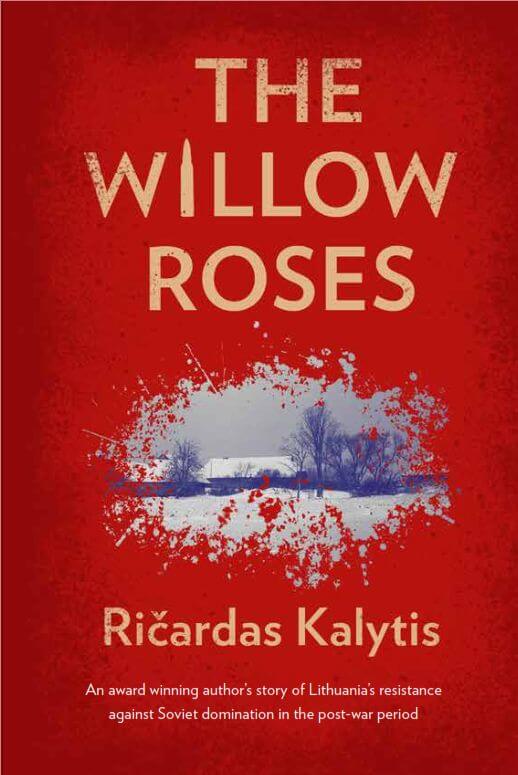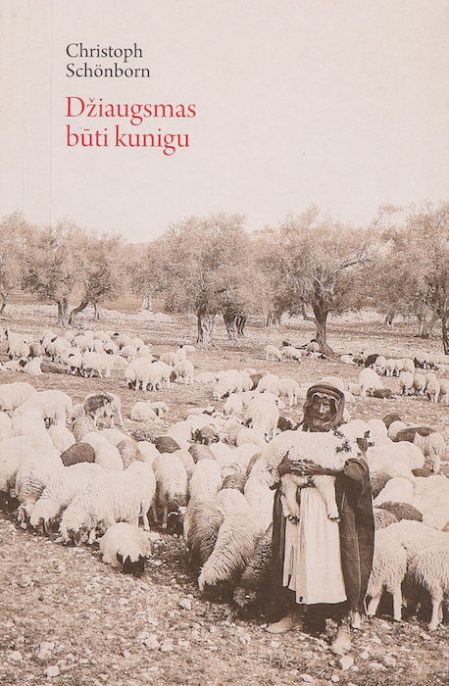‘The Willow Roses’ is a true, fact-based story depicting Lithuania’s resistance against Soviet domination in the post war period.
The narrative develops in the Lithuanian village of Ažugiriai where people noticed willow trees ‘blooming with red roses’ in the winter after World War II. It is a natural phenomenon where the leaves of the willows left hanging on the branches in the winter become red and shrunk and reminiscent of roses. In Lithuania, it is believed that this incredible natural process prophesies tragedy, blood and death. The prophecy came true when the terrible machine of Soviet terrorism unfolded all its supremacy in post-war Lithuania and the politicians of the time did not manage to resist, leaving citizens to deal with the situation on their own.
The author, however, does not go deep into historical analysis. Instead, he reveals the emotions and dramatic experiences of people, who had to take fatal decisions and withstand their outcome, to choose between their beliefs and keeping themselves and their families safe, to die or to obey.
Lithuanian writer Ričardas Kalytis, who lived through the resistance struggles and the exile to Siberia in person. Ričardas was born in 1932 and was sent to Siberia together with his mother in 1949, where he spent all his youth and came back to Lithuania only in 1961. Possessing a technical doctor’s degree and being praised for his scientific inventions and managerial work, he is also a prominent and award-winning author of historical novels.
‘The Willow Roses’ is his third novel, originally published in 1997. Before it, came ‘Our, not songs’, time’ (1992) and ‘The place of cry’ (1995), with the latter being awarded a National Literature Award Žemaitė Prize. Later, he wrote ‘The times of dogsbodies’. All four literary pieces depict the lives of people in historically significant moments transferring global conflicts to an individual level and showing off their drama through experiences, emotions, and the fates of ordinary people. All the novels are full of cultural symbolism, household habits and the linguistic particularities of the beginning of 20th century Lithuania, subtle humour being an indispensable spice even in the most tragic situations.
„Nauja knyga pasklido po pasaulį anglų kalba apie mūsų “karą po karo“. Jau turbūt niekas asmeniškai nebeprisimena skaudžios kruvinos epochos, kurioje lietuviai kariavo su okupantu ir jų padėjėjais. Jie gynė Lietuvą, kurios nebuvo, ji buvo ištrinta iš pasaulio žemėlapių. Liko tik meilė Lietuvai. Ta karšta meilė vedė Lietuvą į iš anksto pralaimimą karą, aukojant savo gyvybę. Sunku suskaičiuoti kiek kovotojų žuvo šiame kare, kiek pateko į kalėjimus, lagerius, tremtis. Šitą gyvenančią kartą pasiekė gyvųjų žmonių pasakojimai. Bet ar pakankamai mes paliekame įrašytą medžiagą ateinančioms kartoms?
Niekas neparašė romano apie šitą didvyrišką karą. Nebeliko rašytojų. Priešai pasistengė, kad neliktų net šaknų iš kurių atželtų nauja karta rašytojų.
Būdamas 14 metų patekau Utenos KGB požemyje po budelio kojom. …ant cemento grindų paguldytas kniūbsčias, ant “letenėlių”, prispaustų kareiviškais batais. Budelis storu kabeliu “tiešyjasi“ šniodamas per nuogą nugarą (tai nebuvo pati žiauriausia kankynė). Tada prisiekiau: kai užaugsiu, tapsiu rašytoju, parašysiu knygą. Užaugau Sibire, rašytoju tapau 1999 m. Išleidau romaną “Karklų Rožės“ (leidykla “Alma littera“.) Tikėjausi, kad pasipils romanai, panašūs į daugiatomį “Tichij Don“. Nepasipylė, tačiau tokio romano tauta laukė. Utenoje per spektaklį pagal mano romaną “Verksmo vieta“ žmonės bučiavo mane, dėkojo. Bet Lietuva “susiraukusi” tylėjo. O galėjo tai būti naujos Lietuvos rašytojų kartos gimimo pradžia. Pasiturinčių žmonių prašiau materialinės paramos, rūpėjo paskleisti po pasaulį žinią apie mažai žinomą lietuvių kovą po karo. Veltui, net Valstybė nepadėjo”. – Ričardas Kalytis






